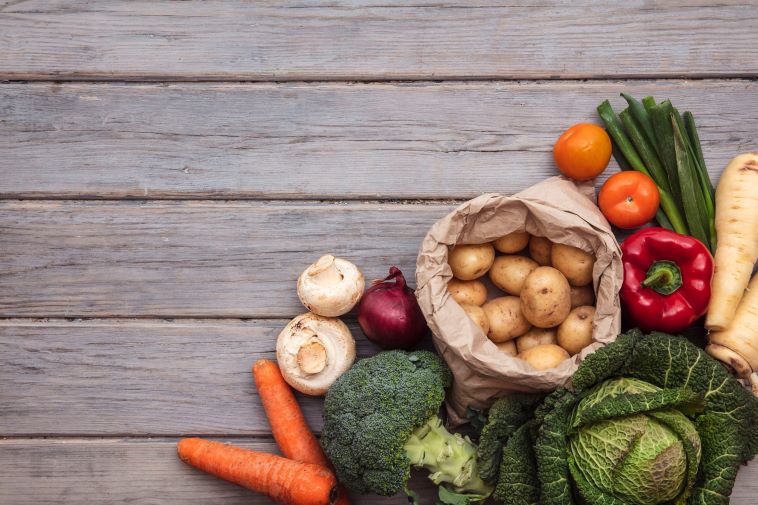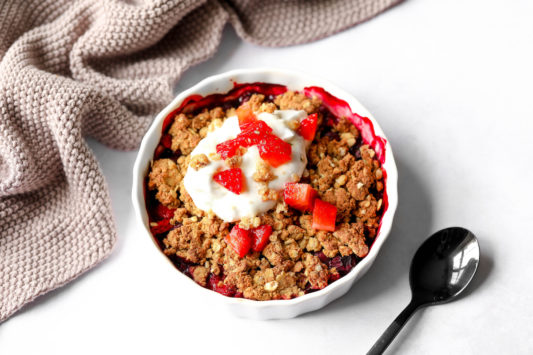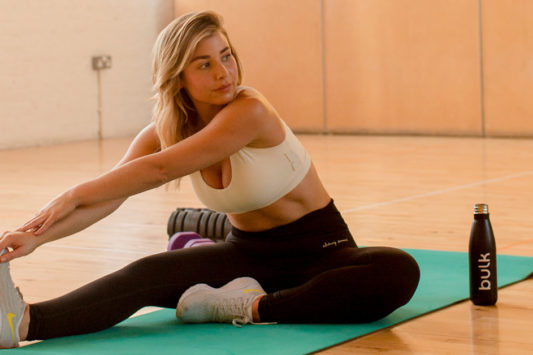Essential vitamins and minerals are often overlooked when we think about our diets. In this quick guide to the most important vitamins and minerals, we’ll go through all the reasons why they’re fundamental – dosages and supplement options included. Read on to get the low-down.
Why are vitamins important for you?
If you’re reading this guide, you’re probably asking yourself: why are vitamins and minerals important? And why are they so underrated?
When it comes to nutrition we tend to focus on our macros (carbs, fats, protein) and the ways in which they can help us lose weight or gain mass. However, that often puts us in a position where we’re overlooking our micros. Even though the name might suggest otherwise, micronutrients are essential to our body’s functions. Vitamins and minerals play a major role in our energy levels, immune system, overall growth and more. We simply refer to them as micronutrients because we need them in smaller amounts compared to macronutrients but they’re equally important.
What are the essential vitamins?
There are 13 essential vitamins that our body needs. Let’s take a look at the most important vitamins below:
- Vitamin A
Fundamental for maintaining healthy skin, tissues and immune system. You can find it in dairy products as well as yellow fruits, vegetables and leafy greens. That’s because they contain beta carotene that our body can convert into vitamin A. - Vitamin C (ascorbic acid)
Key antioxidant for collagen production and wound healing. Plus, it supports the immune system. Get it from citrus fruits as well as broccoli, spinach, potatoes and berries. - Vitamin D
Essential for calcium absorption, teeth and bone health. Also, our body needs sunlight to make vitamin D but we can also find it fish-liver oils and fortified foods (milk and cereals) as vitamin D deficiency is widespread. - Vitamin E
Another antioxidant that eliminates unstable molecules that can potentially damage other cells and protects fatty acids. We can find it in leafy greens, whole grains and nuts. - Vitamin K
Essential for blood coagulation. Without it, our blood wouldn’t be able to change from liquid to gel form and stop excessive bleeding if a blood vessel is compromised. - Vitamin B1 (thiamine)
Key for converting food into energy and maintaining a healthy metabolism, brain and nerve function. Pork, nuts, brown rice, grains and most nutritious foods contain it. - Vitamin B2 (riboflavin)
It’s also important for energy production and maintaining healthy skin, vision, blood and brain. Dairy products, leafy greens and whole grains are a great source of this essential vitamin. - Vitamin B3 (niacin)
Also contributes to metabolising energy and contributes to psychological function. It’s available from legumes, lean meats and dairy products. - Vitamin B5 (pantothenic acid)
Supports our metabolism and hormone production. You can find it in a huge variety of foods including chicken, whole grains, broccoli, mushrooms and more. - Vitamin B6 (pyridoxine)
Helps to maintain brain functions and supports the production of red blood cells as well as promoting the metabolism of proteins and carbs. We can get it from leafy greens, meat, fish, poultry, legumes, tofu and other soy products, potatoes, bananas and watermelons. - Biotin
Key for healthy skin and hair, it helps to convert food into energy and we can find it in soybeans, egg yolks, whole grains and nuts.
- Vitamin B9 (folate)
This one is especially important for pregnant women as it’s fundamental for cell creation & tissue growth. You can get it from spinach, okra, black-eyed peas, chickpeas, asparagus, orange and tomato juice, broccoli and more. - Vitamin B12 (cobalamin)
As it’s mostly available from animal products, it’s often lacking from vegetarian and vegan diets. Vitamin B12 supports the creation of new cells and red blood cells and is important for the nervous system. You can find it in all animal products and fortified soymilk.
How much do you need?
As with anything in your diet, you shouldn’t go overboard. If you’re suffering from vitamin and mineral deficiencies, you should make up for it over time allowing your body to absorb the nutrients and get their benefits. Incrementing your intake overnight won’t make up for the imbalance instantly.
You should always follow the recommended dosage for each supplement you’re integrating. Exceeding that dosage can accentuate those very deficiencies you’d like to balance. For example, some research shows that taking too much vitamin A over a long period of time may make our bones more fragile and prone to fractures.
How taking supplements will help
If you’re following a vegetarian or vegan diet, taking supplements will allow you to get those essential vitamins and minerals that are mostly available from animal sources. It’s an easy and straightforward way of integrating your diet.
Even though you don’t have any specific dietary requirements, supplements are an effective way of covering multiple deficiencies at the same time. Plus, you’ll be definitely getting the correct amount of your vitamin of choice as the formulas are in line with daily nutritional requirements.
Here are some of the best vitamin and nutrients supplements
Finally, here are the top categories to browse and start including the most important vitamins and minerals in your diet on a daily basis.
Let us know how you get on with your vitamin supplements tagging #TeamBulk and @bulk.











